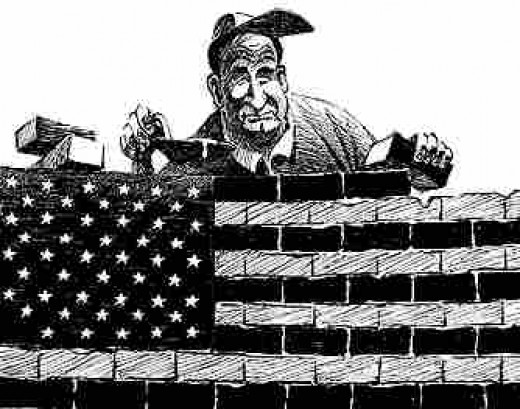
The international system, which has maintained some form of order in the geopolitical and global economy, is growing weak at a tremendous speed. It is as if every player on the international stage is doing their best to hasten the collapse of the center and prevent its restoration. In influential countries, the population is divided between increasingly hostile sides, and governments seem to ignore the fact that it is to their advantage to protect the system of collective security and cooperation. Current dogmatism worsens past mistakes, while narrow political interests undermine everyone’s ability to deal with increasingly dangerous problems.
These days on the political scene in the United States and United Kingdom, you can find the most dramatic manifestations of this trend. The U.S. presidential campaigns show the extent of division between right- and left-wing extremism. Donald Trump represents the policy of the tea party activists, which is not bound by superfluous civility in its battle against the political system. Hillary Clinton, who represents the progressive wing of the status quo, ran for the presidential nomination while fighting off Bernie Sanders, a tough rival from the populist wing of the Democratic Party. These rifts reflect a hardening of positions across the political spectrum. After the elections, the country will remain polarized and in a state of confusion, while the people are in need of strong leadership.
The United Kingdom, a pillar of the postwar international order, finds itself in a maelstrom of self-cancellation and isolationism. The referendum puts an end to the country’s participation in the European Union and has unsettled the economy and political scene. It has released strong divisive and xenophobic trends, which were hiding under the surface and are now difficult to harness. And as if all this were not enough to lead the country to isolation, when the Chilcot report on the U.K’s involvement in the 2003 U.S.-led invasion of Iraq was made public, it deepened isolationist trends.
The Chilcot report may have wider implications on the global stage. Military intervention in Libya, where the U.K. followed France’s lead, later proved that involvement in another country’s current affairs, combined with the lack of strategic planning for the future, can lead to disaster. The U.S. decision to reject a robust intervention in Syria indicates a newfound reluctance. Political analysts, who were opposed to the 2003 Iraq invasion, are concerned that the Chilcot report might rule out military action even when it might be required. Certainly, war has always been horrific, but it is also necessary at times — in the future though, what leader will venture it, remembering that it might lead him to share the same fate as Tony Blair, who is currently being taunted about the mistakes he made?
International terrorism is flourishing. Countries are testing borders and agreements; new conflicts and climate change are forcing more and more people to become refugees and immigrants. If the international crisis management system is left to chance, no nation and no person will be safe.

Leave a Reply
You must be logged in to post a comment.